Search results
Projects
Writers Immersion and Cultural Exchange
Changing the stories we tell and listen to
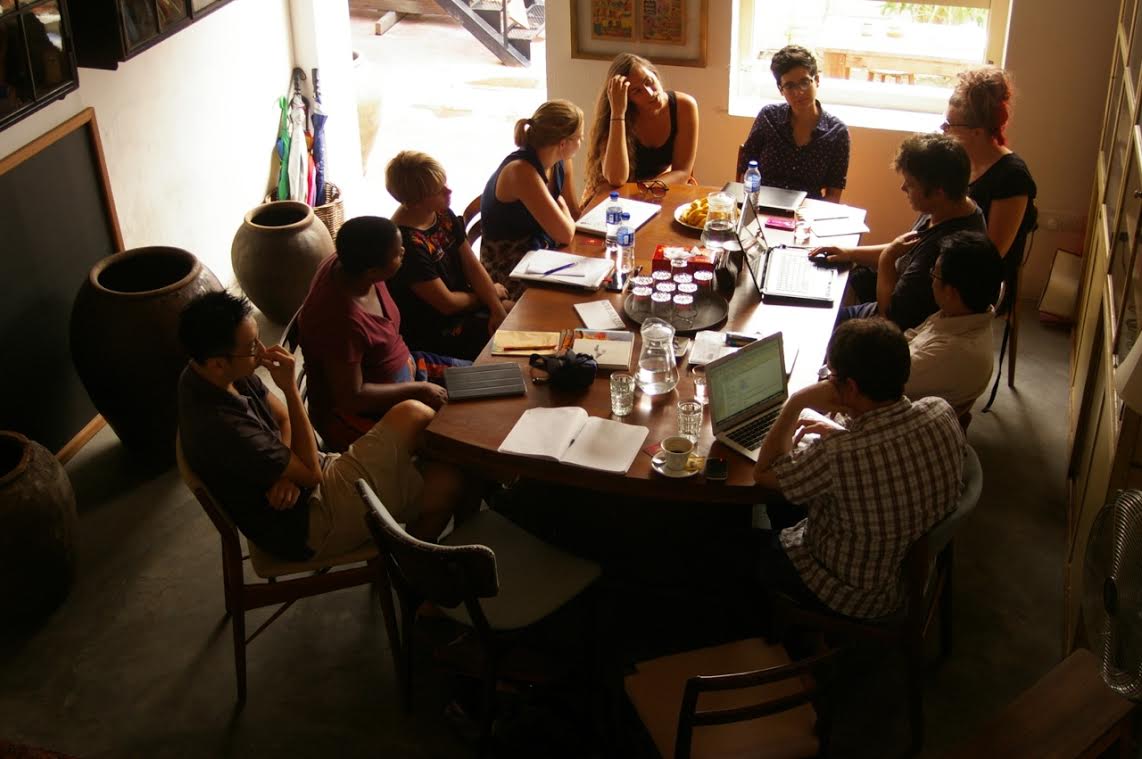
Perspectives shift and networks expand when writers step out of their comfort zone and into unfamiliar cultural spaces where they can connect and share ideas with other writers. Writers Immersion and Cultural Exchange (WrICE) program contributes to an Asia-Pacific community of writers in a collaborative way, influencing broader societal perspectives and changing the stories we tell and listen to. It provides a framework for intercultural and intergenerational dialogue — the exchange and furthering of knowledge, creativity, skills and cultural perspectives.
Visit the WrICE website.
If you would like to get involved with this project, fill out the form below or reach out to project leaders via the contact info provided alongside each bio.
People
Francesca Rendle-Short
Associate Professor and Associate Dean, Writing and Publishing
School: Media and Communication
+61 3 9925 9052
Personal website
francesca.rendle-short@rmit.edu.au
Francesca Rendle-Short is Associate Dean Writing and Publishing in the School of Media and Communication at RMIT University in Melbourne, Australia. She is co-founder of the non/fictionLab research group and co-director of WrICE (Writers Immersion and Cultural Exchange). She has a Doctor of Creative Arts from the University of Wollongong, was a recipient of an International Nonfiction Writers Fellowship to the University of Iowa, and was showcased in the Outstanding Field at Victoria College of the Arts, University of Melbourne.
Francesca Rendle-Short is an award winning novelist, memoirist and essayist. Her books include Bite Your Tongue, Imago, and The Near and The Far; also the forthcoming 100 Love Letters, and No Notes (This is writing). Her artwork is in the collection of the State Library of Queensland.
David Carlin
Professor of Creative Writing, Co-Director of the non/fictionLab, Co-Director WrICE
School: Media and Communication
9225 3934
Personal website
david.carlin@rmit.edu.au
David Carlin is a writer, creative artist and scholar. His books include The Abyssinian Contortionist, Our Father Who Wasn’t There, and (forthcoming) The After-Normal for Rose Metal Press, and 100 Atmospheres: Studies in Scale and Wonder for Open Humanities Press. David’s essays, plays, radio features, exhibitions, documentary and short films have won awards and featured at numerous international festivals. He co-edited a cross-cultural anthology of Asian and Australian writers, The Near and the Far (with Francesca Rendle-Short, Scribe 2016) and Performing Digital (Routledge, 2015), about the Circus Oz Living Archive project he led. Co-President of the NonfictioNOW Conference, the world’s leading conference in literary nonfiction, David is a Professor at RMIT University, Australia, where he co-directs WrICE and non/fictionLab.
Doubting Writing/Writing Doubt
Expanded writing program

This project brought together writers of diverse disciplinary and creative backgrounds to explore new methodologies for arts writing and criticism in response to the exhibition On Vulnerability and Doubt at ACCA. Following a public call-out, that attracted over 60 applicants, ten writers were selected to participate in a series of workshops, a public readings event and to co-design a digital publication.
Doubting Writing/Writing Doubt took the exhibition themes of doubt and vulnerability as provocations from which to write about art. It built on the success of 2018’s Writing in the Expanded Field, which explores diversification in contemporary critical writing.
The project was a great success, attracting excellent applicants, high public interest, connections with the arts publishing industry, and firmly consolidating the partnership between non/fictionLab and ACCA.
Digital Publication
ACCA Program Page
Podcast of Public Readings Event
If you would like to get involved with this project, fill out the form below or reach out to project leaders via the contact info provided alongside each bio.
People
Lucinda Strahan
School: Media and Communication
Lucinda Strahan is a writer and researcher of expanded nonfiction. Lucinda’s own expanded writing practice spans journalism and arts criticism, auto-ethnographic and personal essaying, editing and publishing, and exploratory literary-visual methods. She is the currently Writer in Residence at Linden New Art, St Kilda and in 2017 was Writer in Residence Residence at Grey Projects, Singapore as part of her ongoing interest in interdisciplinary critical/creative writing practices. Lucinda is a Lecturer in the Professional Communication program in the School of Media and Communication.
Aesthetics, Politics and Histories: The Social Context of Art
AAANZ Conference 2018
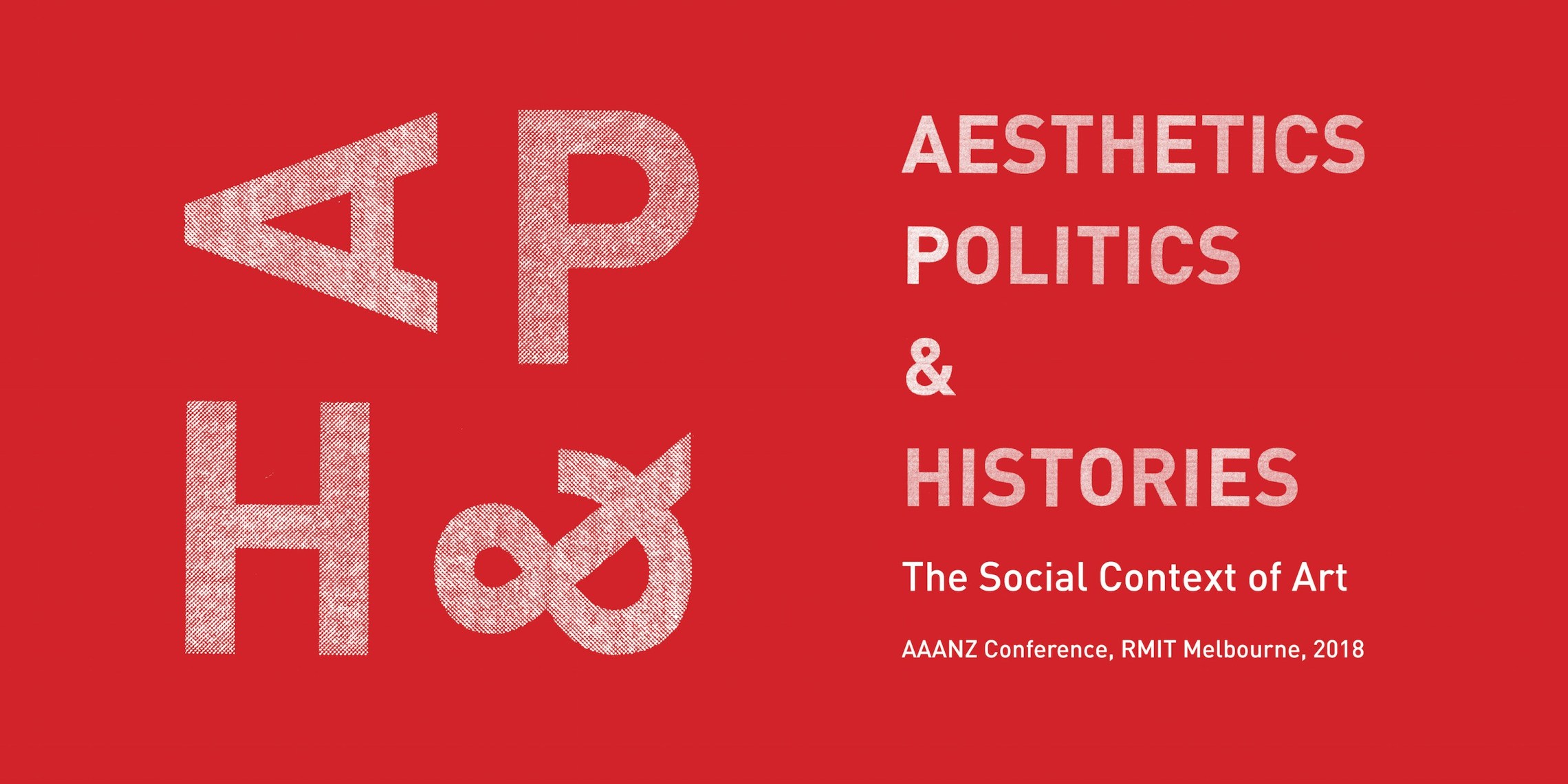
The 2018 AAANZ conference opens critical dialogue on the histories of art by examining the social contexts of aesthetics and politics. Bringing together art historians, theorists, curators, critics, and artists from across the region, the conference offers a stimulating four-day program of panels and papers, publication prizes, masterclasses and encounters with Melbourne’s vibrant arts sector with a parallel artistic program to be announced in coming months.
The conference features distinguished keynote speakers who will present expanded and alternative frameworks for understanding the diverse contexts and histories of art. Gabi Ngcobo (South Africa), curator of the 10th Berlin Biennale; Genevieve Grieves (AUS), Head of the First Peoples Department at Museums Victoria; and Ema Tavola (Fiji), independent curator are each engaged in critical curatorial practices aimed at democratising and decolonising art institutions and opening up art collections to alternative perspectives and narratives traditionally overlooked by museums and galleries. Art historian Professor Griselda Pollock (UK) from Leeds University is renowned for her postcolonial, queer feminist analysis of the visual arts, visual culture and cultural theory and research of trauma and the aesthetic in contemporary art. Curator and Associate Professor David Teh specialises in contemporary art in Southeast Asia.
The intersection of art and society is where differing worldviews and opposing epistemologies can meet and clash. Art offers a site for modelling political alternatives, questioning dominant discourses, and producing new historical narratives. Responding to the political, economic and environmental tensions of the present moment, the conference explores the relationship of the arts to social life throughout history. Located in a region marked by multiple and overlapping colonial and postcolonial histories and contemporary processes of globalisation, the conference aims to initiate critical dialogues that foreground the complex contexts, diverse practices, multiple histories, and contested trajectories of art.
KEYNOTE SPEAKERS
Genevieve Grieves is Worimi – traditionally from mid north coast New South Wales – and has lived on Kulin country in Melbourne for many years. She is an educator, curator, filmmaker, artist and oral historian who has accumulated nearly twenty years’ experience in the arts and culture industries. Some of her projects include the documentary, Lani’s Story; the video installation, Picturing the Old People; and, she was the Lead Curator of the internationally award-winning First Peoples exhibition at the Melbourne Museum. Genevieve has a role as a public intellectual and speaker and is undertaking her PhD in arts, memorialisation and frontier violence. She is Head of the First Peoples Department at Museums Victoria.
Gabi Ngcobo is the curator of the 10th Berlin Biennale. Since the early 2000s Ngcobo has been engaged in collaborative artistic, curatorial, and educational projects in South Africa and on an international scope. She is a founding member of the Johannesburg based collaborative platforms NGO – Nothing Gets Organised and Center for Historical Reenactments (CHR, 2010 – 14). NGO focusses on processes of self-organization that take place outside of predetermined structures, definitions, contexts, or forms. CHR responded to the demands of the moment through an exploration of how historical legacies impact and resonate within contemporary art.
Recently Ngcobo co-curated the 32nd Bienal de São Paulo, which took place in 2016 at the Ciccillo Matarazzo Pavilion in São Paulo, and A Labour of Love at Weltkulturen Museum, Frankfurt am Main in 2015⁄16) and travelled to the Johannesburg Art Gallery in 2017. She has been teaching at the Wits School of Arts, University of Witswatersrand, ZA, since 2011. Her writings have been published in various catalogues, books, and journals. She currently lives and works between Johannesburg and Berlin.
You can find out more about the event here.
If you would like to get involved with this project, fill out the form below or reach out to project leaders via the contact info provided alongside each bio.
People
Marnie Badham
Senior Research Fellow/ Senior Lecturer
School: School of Art
With a twenty-five-year history of art and social justice practice Australia and Canada, Marnie’s research sits at the intersection of socially engaged art, community-based research methodologies and the politics of cultural measurement. Marnie is currently focused on a series of creative cartographies registering emotion in public space; expanded curation projects on the aesthetics and politics of food; and a book project The Social Life of Artist Residencies: connecting with people and place not your own. Marnie is Senior Research Fellow at the School of Art following the prestigious award of Vice Chancellor’s Postdoctoral Research Fellow at RMIT University. Marnie co-leads the Cultural Value Impact Network and is acting Leader for CAST Contemporary Art and Social Transformation research group.
Daniel Palmer
Associate Dean
School: School of Art
Daniel Palmer is Associate Dean of Research and Innovation in the School of Art at RMIT University.
Daniel Palmer’s research and professional practice focuses on contemporary art and cultural theory, with a particular emphasis on photography and digital media. Prior to joining RMIT in 2018, Palmer was Associate Dean of Graduate Research and Associate Professor in the Art History & Theory Program at Monash Art, Design & Architecture. He also has a long association with the Centre for Contemporary Photography in Melbourne, first as a curator and later on the board of management.
Palmer’s book publications include Photography and Collaboration: From Conceptual Art to Crowdsourcing (Bloomsbury 2017); Digital Light (Open Humanities Press, 2015), edited with Sean Cubitt and Nathaniel Tkacz; The Culture of Photography in Public Space (Intellect 2015), edited with Anne Marsh and Melissa Miles; Twelve Australian Photo Artists (Piper Press, 2009), co-authored with Blair French; and Photogenic (Centre for Contemporary Photography, 2005). His scholarly writings on photography and contemporary art have appeared in journals such as Photographies, Philosophy of Photography, Angelaki, Reading Room and the Australian and New Zealand Journal of Art. Palmer has also published over sixty catalogue essays and fifty art reviews since 1997, in art magazines including Art and Australia, Photofile and Frieze.
Palmer has been the recipient of various awards and grants, and has been Chief Investigator on multiple ARC projects, including the ARC Discovery Project ‘Genealogies of Digital Light’ (2008 – 11) with Sean Cubitt and Les Walkling; an ARC Linkage Project ‘Photography as a Crime’ (2009 – 2012) with Anne Marsh, Melissa Miles, Mark Davison and the Centre for Contemporary Photography; and the ARC Discovery Project ‘Curating Photography in the Age of Photosharing’; (2015 – 2017) with Martyn Jolly. Palmer is currently a researcher on the ARC Discovery Project ‘Digital Photography: Mediation, Memory and Visual Communication’ (2020 – 2022) with Scott McQuire, Nikos Papastergiadis, Sean Cubitt and Celia Lury.
Canadian & Australian Book Industries Conversation
Exploring new collaborative opportunities in publishing
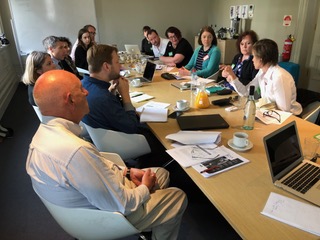
How healthy is the bookselling and publishing industry in Australia? And what are the key reasons for this state of wellbeing (or illness)?
Canadian and Australian Book Industries Conversation (CABIC) brings together leading academics and industry figures to explore themes important to Australian and Canadian authors, illustrators and publishers, including the importance of local content, the book industry policy climate, and regulatory changes and challenges.
If you would like to get involved with this project, fill out the form below or reach out to project leaders via the contact info provided alongside each bio.
People
Julienne Van Loon
Senior Research Fellow, Design and Social Context
School: Media and Communication
+61 3 9925 9564
RMIT staff profile
julienne.vanloon@rmit.edu.au
Dr Julienne van Loon is a Vice Chancellor’s Senior Research Fellow with non/fictionLab, and a leading Australian novelist and essayist. Her first novel, Road Story, won The Australian/Vogel’s award in 2005 and was shortlisted for the WA Premier’s Award for Fiction and the Commonwealth Writers’ Prize Best First Book Award (Asia and Pacific). She has held residencies at various international arts organisations and universities, including the University of Iowa, where she was sponsored by the Paul and Hauling Engle Fund to take part in the International Writing Program in 2017. van Loon co-edits the leading scholarly Creative Writing journal TEXT, and is a peer-assessor for the Australia Council for the Arts. Her forthcoming essay collection, The Thinking Woman, includes interviews with key women thinkers from the Australia, Europe and the United States. Her scholarly research interests include the role of play in research and creative practice.
Cultural Impact Workshop Series
Measuring the Real-World Benefits of Creative Practice Research
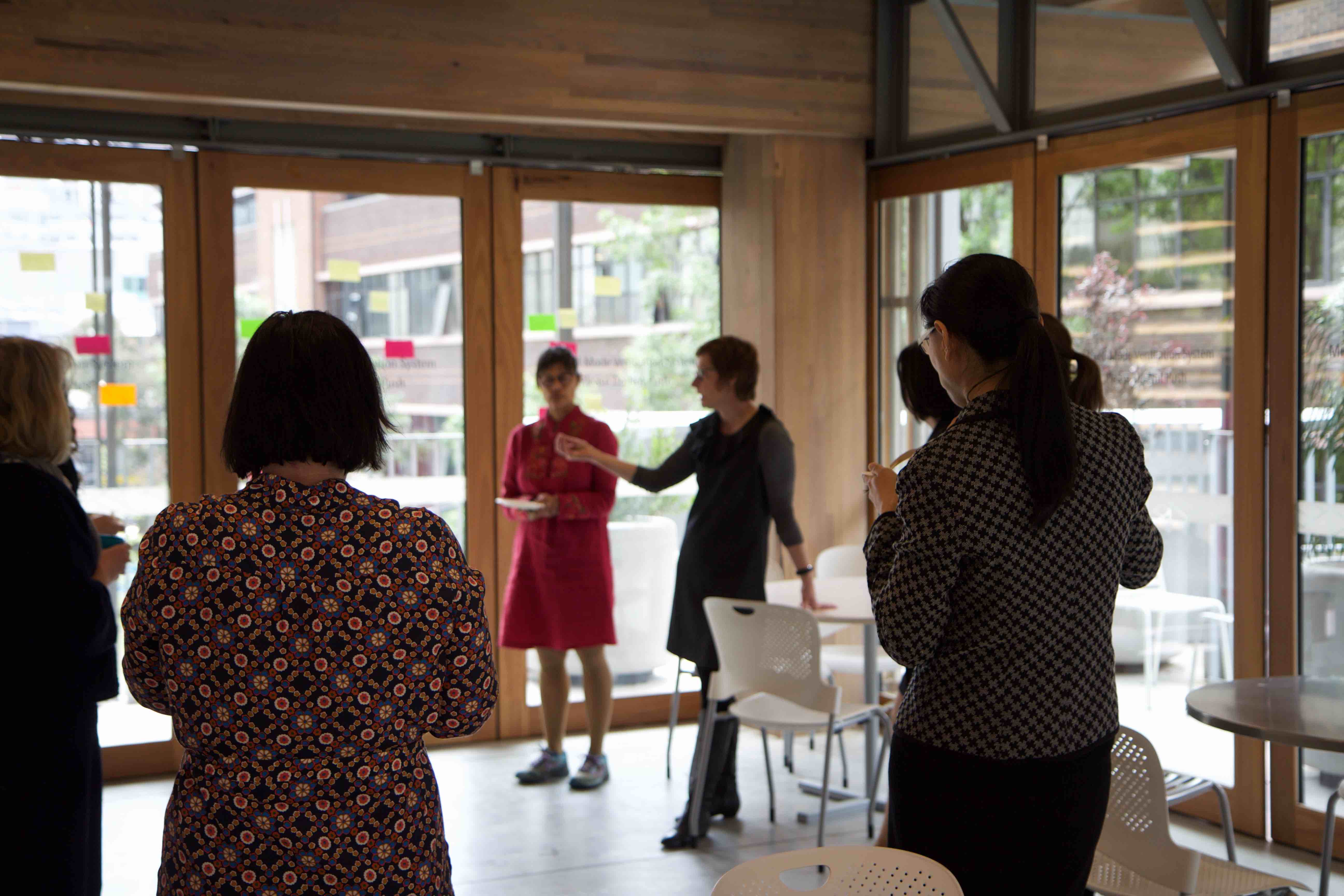
In this series of hands-on workshops, leaders in the field demonstrated how to engage and translate practice and research into real-world benefits. Presented by RMIT’s non/fictionLab, Screen & Sound Cultures, School of Design and RMIT Culture, the project focused on the specific challenges faced by creative practice disciplines such as visual art, design, advertising, creative writing and screen and involved both creative practice researchers and industry creatives.
If you would like to get involved with this project, fill out the form below or reach out to project leaders via the contact info provided alongside each bio.
People
Michelle Aung Thin
School: Media and Communication
Michelle Aung Thin is a writer, former advertising copywriter and scholar. She is a Lecturer at RMIT University and teaches across the disciplines of Creative Writing and Advertising. Her most recent novel, Hasina (Allen & Unwin 2019) is about Rohingya ethnic cleansing and is published as Crossing the River Farak (Annick 2020) in Canada and the USA. Her first novel, The Monsoon Bride, (Text 2011) is set in colonial Burma and was shortlisted for the Victorian Premier’s Literary awards as an unpublished manuscript. Her writing has been included on VCE reading lists and republished on the SBS website. In 2017, she was a National Library of Australia Creative Arts Fellow (supported by the Eva Kollsman and Ray Mathew Trust) and in 2014, the first Asialink writer in residence to Myanmar (funded by Arts Victoria).
Michelle was a co-director of the non/fictionLab in 2018 and 2019, is currently a co-director of WrICE, Writers Immersion and Cultural Exchange and has served on the board of The Lifted Brow. Her research interests range from the cultural history of southeast Asian hybrid identities to contemporary creative practices in Myanmar and the ethics of writing about difference. Current research includes a project addressing diversity in publishing and a pilot study that aims to reduce sexist advertising by educating the next generation of advertising creatives about harmful stereotypes.
News and updates
WrICE Program Partners with Leading Asian Literary Centre
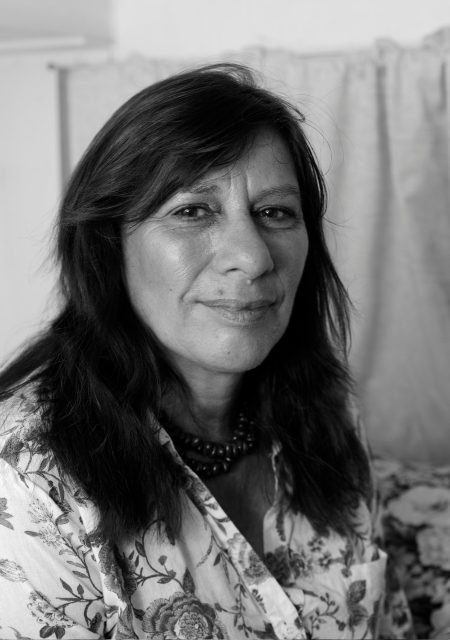
RMIT’s Writers Immersion and Cultural Exchange Program (WrICE), now in its fifth year, will partner with the Jakarta Post Writing Center in 2018. Read more
DCP Lectures | Dr Anne Galloway
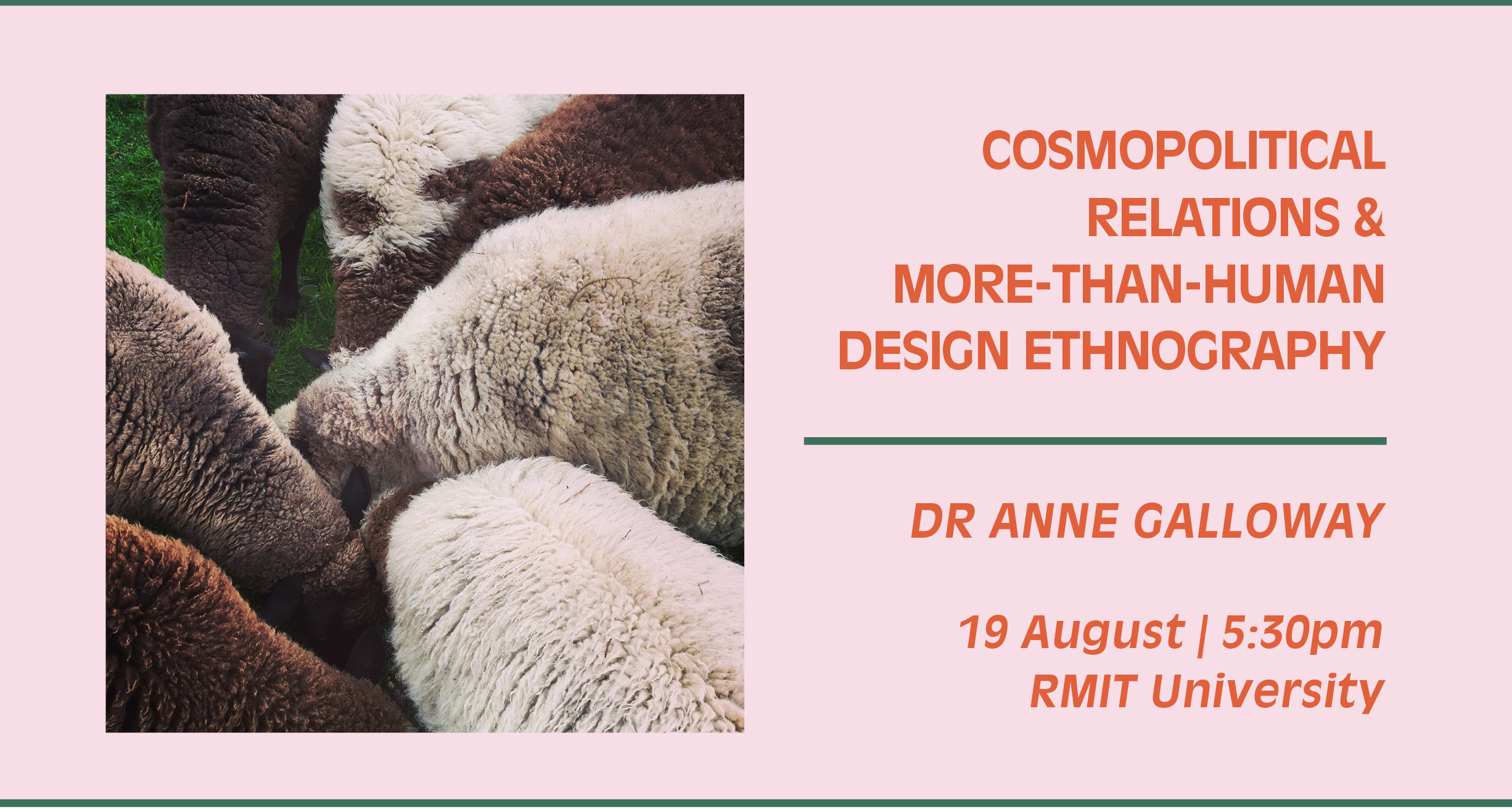
Cosmopolitical Relations & More-Than-Human Design Ethnography
Monday 19 August, 5:30 – 6:30pm
RMIT City Campus, Building 80.10.16 Read more
HDR Opportunity: Dr Anne Galloway Workshop
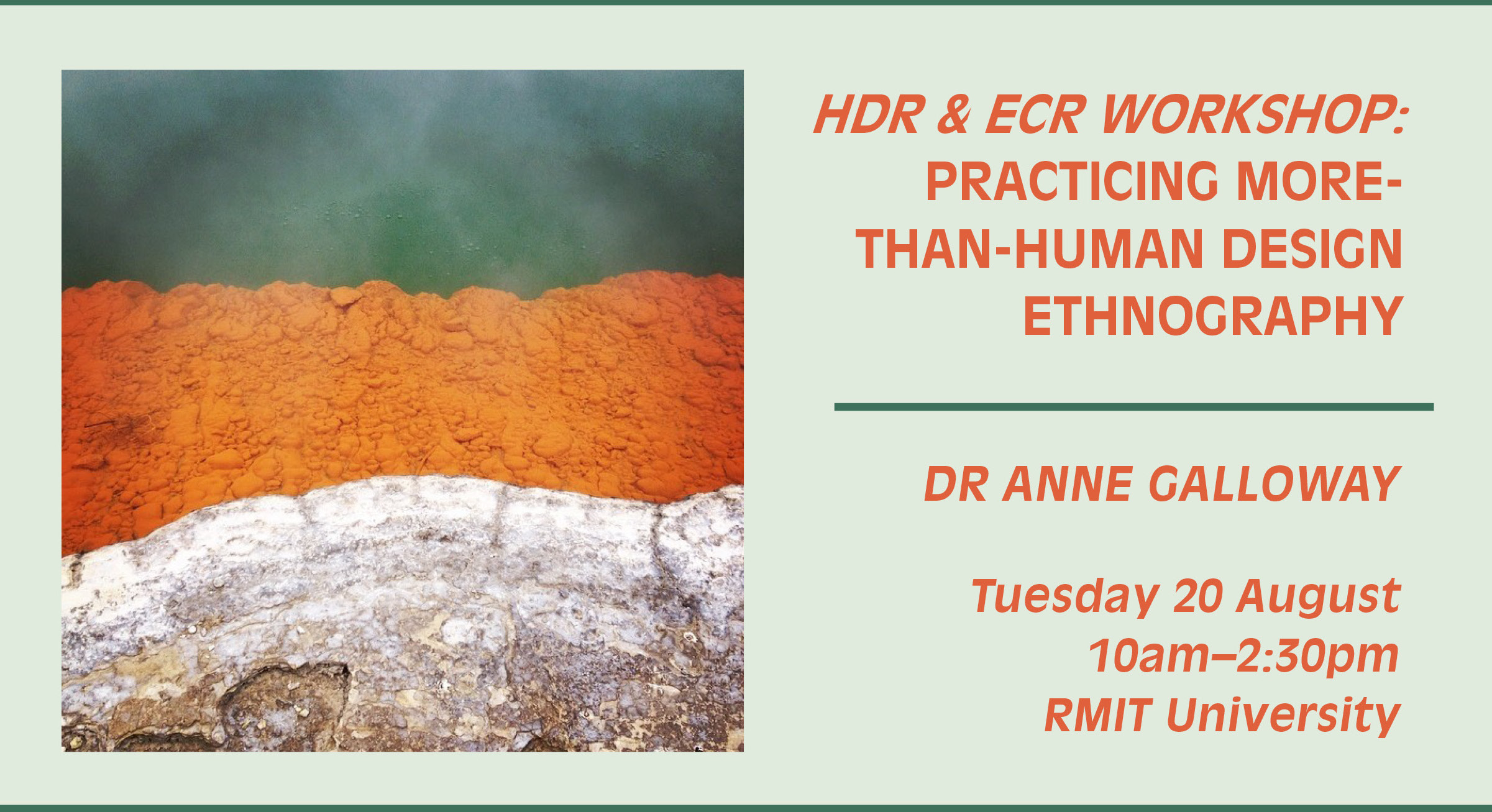
Practicing More-than-human Design Ethnography Workshop
Dr Anne Galloway, School of Design, Victoria University of Wellington, NZ
Tuesday 20 August 2019, RMIT City Campus Read more
People
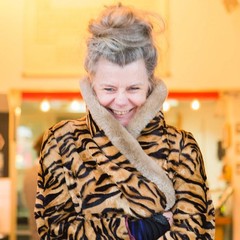
Francesca Rendle-Short is Associate Dean Writing and Publishing in the School of Media and Communication at RMIT University in Melbourne, Australia. She is co-founder of the non/fictionLab research group and co-director of WrICE (Writers Immersion and Cultural Exchange). She has a Doctor of Creative Arts from the University of Wollongong, was a recipient of an International Nonfiction Writers Fellowship to the University of Iowa, and was showcased in the Outstanding Field at Victoria College of the Arts, University of Melbourne.
Francesca Rendle-Short is an award winning novelist, memoirist and essayist. Her books include Bite Your Tongue, Imago, and The Near and The Far; also the forthcoming 100 Love Letters, and No Notes (This is writing). Her artwork is in the collection of the State Library of Queensland.
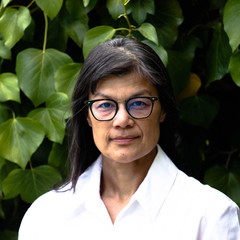
Michelle Aung Thin is a writer, former advertising copywriter and scholar. She is a Lecturer at RMIT University and teaches across the disciplines of Creative Writing and Advertising. Her most recent novel, Hasina (Allen & Unwin 2019) is about Rohingya ethnic cleansing and is published as Crossing the River Farak (Annick 2020) in Canada and the USA. Her first novel, The Monsoon Bride, (Text 2011) is set in colonial Burma and was shortlisted for the Victorian Premier’s Literary awards as an unpublished manuscript. Her writing has been included on VCE reading lists and republished on the SBS website. In 2017, she was a National Library of Australia Creative Arts Fellow (supported by the Eva Kollsman and Ray Mathew Trust) and in 2014, the first Asialink writer in residence to Myanmar (funded by Arts Victoria).
Michelle was a co-director of the non/fictionLab in 2018 and 2019, is currently a co-director of WrICE, Writers Immersion and Cultural Exchange and has served on the board of The Lifted Brow. Her research interests range from the cultural history of southeast Asian hybrid identities to contemporary creative practices in Myanmar and the ethics of writing about difference. Current research includes a project addressing diversity in publishing and a pilot study that aims to reduce sexist advertising by educating the next generation of advertising creatives about harmful stereotypes.
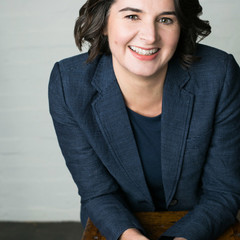
Dr Julienne van Loon is a Vice Chancellor’s Senior Research Fellow with non/fictionLab, and a leading Australian novelist and essayist. Her first novel, Road Story, won The Australian/Vogel’s award in 2005 and was shortlisted for the WA Premier’s Award for Fiction and the Commonwealth Writers’ Prize Best First Book Award (Asia and Pacific). She has held residencies at various international arts organisations and universities, including the University of Iowa, where she was sponsored by the Paul and Hauling Engle Fund to take part in the International Writing Program in 2017. van Loon co-edits the leading scholarly Creative Writing journal TEXT, and is a peer-assessor for the Australia Council for the Arts. Her forthcoming essay collection, The Thinking Woman, includes interviews with key women thinkers from the Australia, Europe and the United States. Her scholarly research interests include the role of play in research and creative practice.
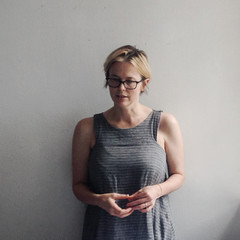
Lucinda Strahan is a writer and researcher of expanded nonfiction. Lucinda’s own expanded writing practice spans journalism and arts criticism, auto-ethnographic and personal essaying, editing and publishing, and exploratory literary-visual methods. She is the currently Writer in Residence at Linden New Art, St Kilda and in 2017 was Writer in Residence Residence at Grey Projects, Singapore as part of her ongoing interest in interdisciplinary critical/creative writing practices. Lucinda is a Lecturer in the Professional Communication program in the School of Media and Communication.

Daniel Palmer is Associate Dean of Research and Innovation in the School of Art at RMIT University.
Daniel Palmer’s research and professional practice focuses on contemporary art and cultural theory, with a particular emphasis on photography and digital media. Prior to joining RMIT in 2018, Palmer was Associate Dean of Graduate Research and Associate Professor in the Art History & Theory Program at Monash Art, Design & Architecture. He also has a long association with the Centre for Contemporary Photography in Melbourne, first as a curator and later on the board of management.
Palmer’s book publications include Photography and Collaboration: From Conceptual Art to Crowdsourcing (Bloomsbury 2017); Digital Light (Open Humanities Press, 2015), edited with Sean Cubitt and Nathaniel Tkacz; The Culture of Photography in Public Space (Intellect 2015), edited with Anne Marsh and Melissa Miles; Twelve Australian Photo Artists (Piper Press, 2009), co-authored with Blair French; and Photogenic (Centre for Contemporary Photography, 2005). His scholarly writings on photography and contemporary art have appeared in journals such as Photographies, Philosophy of Photography, Angelaki, Reading Room and the Australian and New Zealand Journal of Art. Palmer has also published over sixty catalogue essays and fifty art reviews since 1997, in art magazines including Art and Australia, Photofile and Frieze.
Palmer has been the recipient of various awards and grants, and has been Chief Investigator on multiple ARC projects, including the ARC Discovery Project ‘Genealogies of Digital Light’ (2008 – 11) with Sean Cubitt and Les Walkling; an ARC Linkage Project ‘Photography as a Crime’ (2009 – 2012) with Anne Marsh, Melissa Miles, Mark Davison and the Centre for Contemporary Photography; and the ARC Discovery Project ‘Curating Photography in the Age of Photosharing’; (2015 – 2017) with Martyn Jolly. Palmer is currently a researcher on the ARC Discovery Project ‘Digital Photography: Mediation, Memory and Visual Communication’ (2020 – 2022) with Scott McQuire, Nikos Papastergiadis, Sean Cubitt and Celia Lury.
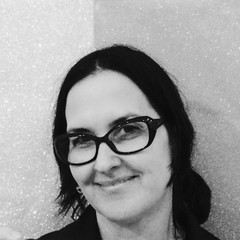
Gretchen Coombs is a Post Doctoral Research Fellow in the Design & Creative Practice Enabling Capability Platform at RMIT. She researches socially engaged art practices in the US, the UK and Australia, with a particular focus on how they are practiced in urban contexts. She’s a core member of the Cultural Value and Impact Network (CVIN) and contributes to Creative Care in the School of Art. Gretchen has a PhD in social and cultural anthropology and a MA in visual criticism: her writing uses a combination of ethnographic methods and visual analysis. She is a co-author of Creative Practice Ethnographies (Rowan & Littlefield 2019) and her monograph, The Lure of the Social: Encounters with Contemporary Artists (Intellect 2021 ) is an experimental ethnography about contemporary artists working at the intersection of art, aesthetics, and politics.
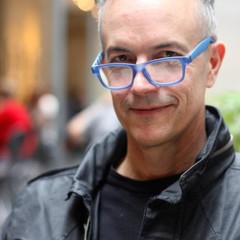
David Carlin is a writer, creative artist and scholar. His books include The Abyssinian Contortionist, Our Father Who Wasn’t There, and (forthcoming) The After-Normal for Rose Metal Press, and 100 Atmospheres: Studies in Scale and Wonder for Open Humanities Press. David’s essays, plays, radio features, exhibitions, documentary and short films have won awards and featured at numerous international festivals. He co-edited a cross-cultural anthology of Asian and Australian writers, The Near and the Far (with Francesca Rendle-Short, Scribe 2016) and Performing Digital (Routledge, 2015), about the Circus Oz Living Archive project he led. Co-President of the NonfictioNOW Conference, the world’s leading conference in literary nonfiction, David is a Professor at RMIT University, Australia, where he co-directs WrICE and non/fictionLab.
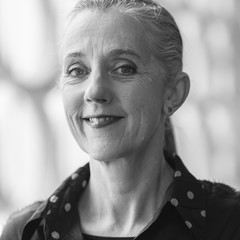
Since 1991, Associate Professor Suzie Attiwill’s freelance practice has involved exhibition design, curatorial work and writing on interdisciplinary projects in Australia and overseas. Her practice poses questions of interior and interiority in relation to contemporary conditions of living, inhabitation, subjectivity, pedagogy and creative practice. Research is conducted through a practice of designing with a curatorial inflection attending to arrangements (and re-arrangements) of spatial, temporal and material relations. Projects include: urban + interior – a collaborative publication project bringing together an editorial team situated in Milan, Madrid and Melbourne; beyond building with Gregory Nicolau (Australian Childhood Trauma Group); Abacus Learning Centre – for children on the autism spectrum; and a series of curatorial experiments in ecologies of learning – physical, social and mental. Suzie is recognised internationally for her contribution to the discipline of interior design including workshop intensives: Radical Learning, Milan International Architecture Week; and Urban Interiorities in Nicosia, Cyprus; texts: ‘interiorizt’, 2014; and ‘Urban and Interior: techniques for an urban interiorist’, 2011. Artistic director of Craft Victoria (1996−99); board member/chair, West Space (2006−10); chair, IDEA (Interior Design/Interior Architecture Educators Association, 2006-12); executive board member, International Federation of Interior Architects/Designers (2020−21).
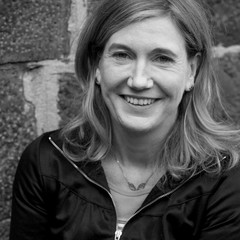
Dr Tania Lewis is the Director of the Digital Ethnography Research Centre and is a Professor in the School of Media and Communication at RMIT University. An ex-medical practitioner, her research critically engages with the politics of lifestyle, sustainability and consumption, and with global media and digital cultures.
Lewis has published over 50 journal articles and chapters and is the author of Smart Living: Lifestyle Media and Popular Expertise, and co-author of Telemodernities: Television and Transforming Lives in Asia, and Digital Ethnography: Principles and Practices. She is also the editor and co-editor of four collections with Routledge including Ethical Consumption: A Critical Introduction and Green Asia: Ecocultures, Sustainable Lifestyles and Ethical Consumption. She is currently writing a book for Bloomsbury Press entitled Digital Food: From Paddock to Platform.
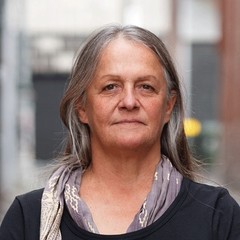
Dr Couzens is Gunditjmara from the Western Districts of Victoria. She acknowledges her ancestors and elders who guide her work.
Dr Couzens has worked in Aboriginal community affairs for almost 40 years. Her contributions in the reclamation, regeneration and revitalisation of cultural knowledge and practice extend across the ‘arts and creative cultural expression’ spectrum including language revitalisation, ceremony, community arts, public art, visual and performing arts, and writing. She is a Senior Knowledge Custodian for Possum Skin Cloak Story and Language Reclamation and Revival in her Keerray Woorroong Mother Tongue.
Vicki is employed at RMIT as a Vice Chancellors Indigenous Research Fellow developing her Project ‘watnanda koong meerreeng , tyama-ngan malayeetoo (together body and country, we know long time)’ The key objective of this Project is to produce model/s, pathways and resources for continuing the reinvigoration of Aboriginal Ways of Knowing Being and Doing with a special focus on language revitalisation.
